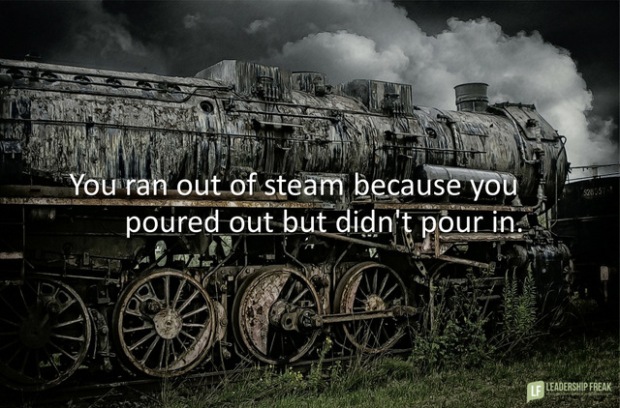A Great post by Dan Rockwell
Three Challenges that Derail Leaders:
Challenge #1: Self-development during seasons of success.
Talent’s halo makes you over-estimate your abilities and under-estimate your need for growth.
I often ask audiences to raise their hands if they’re smarter than the person sitting beside them. We all laugh, but there’s a hint of truth behind the smiles.
Leaders who do everything well are confused.
Challenge #2: Living by priorities rather than urgencies.
Urgencies make you feel important, but sticking to priorities makes you a leader.
Three things that obscure priorities:
- Pressure.
- Problems.
- Opportunity.
The most dangerous urgency is opportunity. Priorities enable “no.”
Challenge #3: Pouring into yourself as you pour out for others.
You ran out of steam because you poured out but didn’t pour in.
Warning phrases include:
- “I’ll take time off after…”
- “Just this time.”
- “I just need to finish this, before…”
Don’t justify poor decisions by suggesting you’ll do it right next time.
An excuse is permission for failure to continue.
Succeeding with the three challenges:
Jim Parker, retired CEO of Southwest Airlines, gave me a surprising answer to winning at leadership’s challenges. He was CEO during 9/11.
It’s been five years since we talked, but I still remember him saying, “Be yourself.”
I keep relearning the wisdom behind those underwhelming words.
- Frequently reflect on yourself and your journey.
- Define your values.
- Connect with mentors and coaches who help you find and express your best self. Avoid mentors who pressure you to be like them.
- Define yourself by who you are, not who others expect you to be. This is the leaders journey.
Being yourself is never an excuse for laziness, indulgence, or flaunting weaknesses.
Be yourself or someone else will define you.
What derailing challenges might you add to my list of three?

